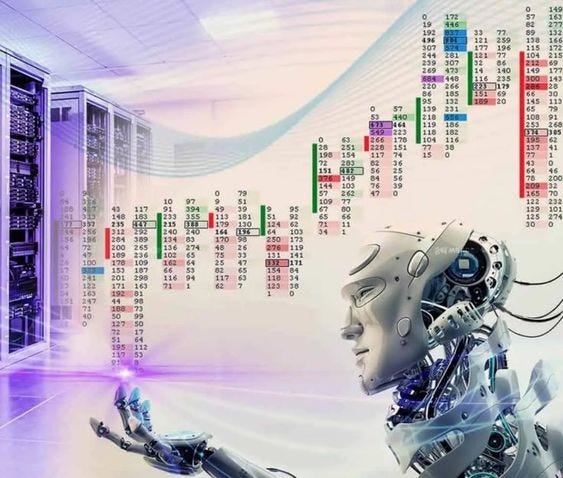In the realm of modern finance, algorithmic trading stands as a groundbreaking method revolutionizing the dynamics of financial markets. This sophisticated approach leverages complex algorithms and high-speed technology to execute trades with precision and efficiency. Renowned for its speed, accuracy, and automation, algorithmic trading has reshaped the landscape of financial markets. This article delves into the essence, mechanisms, benefits, and implications of algorithmic trading in today’s financial ecosystem.
Understanding Algorithmic Trading
Algorithmic trading, often referred to as algo trading or automated trading, employs computer algorithms to execute predefined trading strategies. These algorithms analyze market data, identify patterns, and automatically generate trade signals without human intervention. It operates at lightning-fast speeds, executing numerous trades within microseconds or even nanoseconds, far surpassing human capabilities in processing data and making trade decisions.
The Mechanisms Behind Algorithmic Trading
Market Analysis and Strategy Formulation:
- Data Processing: Algorithms analyze vast volumes of market data, including price movements, volume, order book information, and news feeds.
- Strategy Formulation: Based on predefined parameters, algorithms devise trading strategies, identifying buy/sell signals or arbitrage opportunities.
Order Execution and Speed:
- Automated Order Placement: Algorithms swiftly place orders across multiple markets or exchanges with minimal human intervention.
- High-Frequency Trading (HFT): Utilizing ultra-fast execution speeds to capitalize on fleeting market opportunities.
Risk Management and Adaptability:
- Risk Controls: Algorithms incorporate risk management protocols to limit exposure, prevent excessive losses, and manage portfolio risk.
- Adaptability: Algorithms can swiftly adapt to changing market conditions, adjusting strategies in response to real-time data.
Benefits of Algorithmic Trading
Enhanced Efficiency and Speed:
- Swift Execution: Algo trading executes trades within milliseconds, exploiting fleeting market opportunities.
- Elimination of Emotional Bias: Removes emotional decision-making, ensuring disciplined execution of predefined strategies.
Increased Liquidity and Market Accessibility:
- Improved Liquidity: Enhances market liquidity by providing continuous buy/sell orders.
- Market Accessibility: Facilitates access to markets and assets that might be challenging for individual traders.
Risk Mitigation and Strategy Diversification:
- Risk Management: Incorporates risk controls, stop-loss mechanisms, and diversification to manage risk exposure.
- Strategy Diversification: Allows for simultaneous execution of various strategies across different assets or markets.
Implications and Considerations
Technology and Infrastructure:
- Technological Investment: Requires robust infrastructure, high-speed connectivity, and advanced computing capabilities.
- Cybersecurity Concerns: Heightened focus on cybersecurity to protect algorithms and trading systems from cyber threats.
Regulatory Oversight and Ethics:
- Regulatory Compliance: Regulatory bodies monitor algo trading to ensure fairness, prevent market manipulation, and maintain market integrity.
- Ethical Considerations: Debate around the ethics of high-frequency trading and its impact on market stability and fairness.
The Future of Algorithmic Trading
- Advancements in AI and Machine Learning: Integration of AI-driven algorithms capable of learning and adapting to market dynamics.
- Algorithmic Trading for Retail Investors: Increased accessibility of algo trading tools and platforms for individual traders.
Conclusion
Algorithmic trading epitomizes the intersection of finance and technology, heralding a new era of precision, speed, and efficiency in financial markets. While revolutionizing trading practices and enhancing market liquidity, algo trading also brings forth challenges and considerations, including regulatory scrutiny, technological advancements, and ethical implications. As financial landscapes continue to evolve, algorithmic trading remains at the forefront, reshaping market dynamics, and transforming the way trading strategies are devised and executed. Its continued evolution holds the promise of further efficiency gains, wider market accessibility, and continued advancements in the realms of finance and technology.write article about “Algorithmic Trading”

